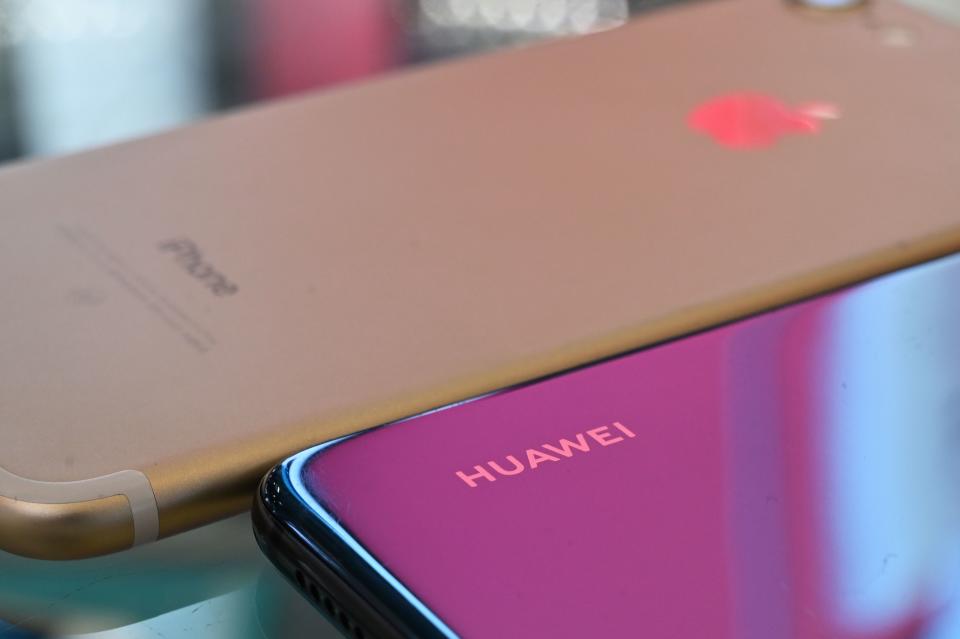US-China trade war: Apple and Huawei tipped as potential biggest losers

Tech giant Apple (AAPL) and China’s telecoms behemoth Huawei have been tipped to be the potential biggest losers in the US-China trade war.
David Cumming, chief investment officer at Aviva Investors said that "US companies that can't reshape their supply chains away from China, to places such as Vietnam or Mexico, will be hit” and that Apple and Huawei are two groups that could be most likely affected.
"There will be winners and losers with the US, and in China. Samsung and LG Electronics will be looking on with interest from the sidelines," he told BBC’s Today programme on Radio 4.
On Sunday, US president Donald Trump slapped another round of tariffs on a further $112bn (£92bn) of Chinese imports. The 122-page list of products hit by the tariffs span across everything from nappies/diapers, dishwashers, and food.
The new round of tariffs are part of Trump’s plan to place 15% duties on $300bn of Chinese imports by the end of 2019. But the tariffs also mean that goods will become more expensive as companies will pass the costs to consumers.
China is responding tit-for-tat by introducing its own tariffs on $75bn worth of US goods, including a 5% levy on US crude oil.

 Yahoo Finance
Yahoo Finance 
